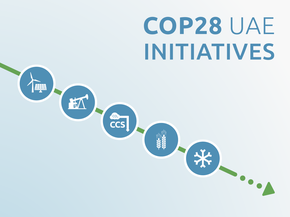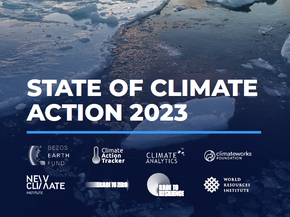Country summary
Overview
This assessment includes our policy analysis for Turkey from 30 July 2020 translated into our new rating methodology. We have updated our data to include the latest historic emissions (2019), updated GDP data for the impact of the pandemics as well as revised our policies and action emissions projections in light of these (see the assumptions section for details). The assessment reflects Turkey’s recent ratification of the Paris Agreement and its net zero announcement. However, we have not undertaken any new analysis of Turkey’s climate policies. We will update our country assessment fully in the coming months, at which time Turkey’s ratings may change.
Turkey is at a crossroads with regards to its energy future: current government plans foresee decreasing its dependency on gas imports through increased renewable energy capacity, but also with the use of domestic lignite coal, with 32GW currently still in the pipeline. Turkey’s emissions will increase significantly under current policies. In October 2021, Turkey finally ratified the Paris Agreement. It submitted its 2015 INDC as its NDC at that time; however, Turkey will need to submit an updated NDC target to be in line with the Paris Agreement. This first NDC is so weak that it allows GHG emissions to essentially double compared to current levels.
The CAT rates Turkey’s climate targets and policies as “Critically insufficient”. The “Critically Insufficient” rating indicates that Turkey’s climate policies and commitments reflect minimal to no action and are not at all consistent with the Paris Agreement. Under Turkey’s current targets and policies, emissions will continue to rise and are consistent with more than 4°C warming.
Turkey needs to set a more ambitious target for emissions reductions and establish associated policies to cut emissions to get a better rating.
Turkey continues to rely on fossil fuels, even though costs for renewables are at record lows. The Ministry of Energy and Natural Resources announced tenders for coal mines promoting domestic lignite in 2019 and in the same year, commenced construction on the long-delayed 1.3 GW Hunutlu thermal power plant. These developments stand in strong contrast to Turkey’s need to reduce the use of coal in electricity to close to zero by 2030. Meanwhile, the import of liquified natural gas (LNG) reached a record high in 2019, and construction began on Turkey’s first nuclear power plant despite international protest at the inherent risk from earthquakes.
The ongoing reduction in the costs of renewable energy technology and storage means that reliable power can be obtained cost-effectively without resorting to coal-powered generation. In fact, installation costs of solar photovoltaic in Turkey are among the lowest in the world. There is also a slowdown in wind power installations (7.4 GW at the end of 2019), throwing wind energy capacity goals into doubt (20 GW by 2023).
Aside from the Energy Efficiency Action Plan and renewable energy auctions, Turkey has made little progress on climate action implementation.
Turkey’s policies and action are “Critically insufficient”. The “Critically insufficient” rating indicates that Turkey’s policies and action in 2030 reflect minimal to no action and are not at all consistent with the Paris Agreement’s 1.5°C temperature limit. If all countries were to follow Turkey’s approach, warming would exceed 4°C. Turkey needs to focus on adopting further policies and action to stop its emissions growth and start reducing emissions towards decarbonization.
We rate Turkey’s NDC target as “Critically insufficient” when compared with modelled domestic pathways (“domestic target”). The “Critically insufficient” rating indicates that Turkey’s NDC target in 2030 reflects minimal to no action and is not at all consistent with the Paris Agreement’s 1.5°C temperature limit. If all countries were to follow Turkey’s approach, warming would exceed 4°C.
Turkey is on track to overachieve this target by a wide margin based on our emissions estimate for 2030 under current policies, which further highlights the weakness of this target. Turkey should significantly strengthen its 2030 target when it submits its NDC update.
We also rate Turkey’s NDC target as “Critically insufficient” when compared with its fair share contribution to climate action (“fair share target”). The “Critically insufficient” rating indicates that Turkey’s NDC target reflects minimal to no action and is not at all consistent with the Paris Agreement’s 1.5°C temperature limit. Turkey’s target is not in line with any interpretation of a fair approach to meeting the Paris Agreement’s 1.5°C limit. If all countries were to follow Turkey’s approach, warming would exceed 4°C.
We do not assess Turkey’s climate finance.
Turkey announced a net zero by 2053 target in September 2021. We evaluate Turkey’s net zero target as incomplete, as few details are available.
Further analysis
Latest publications
Stay informed
Subscribe to our newsletter




